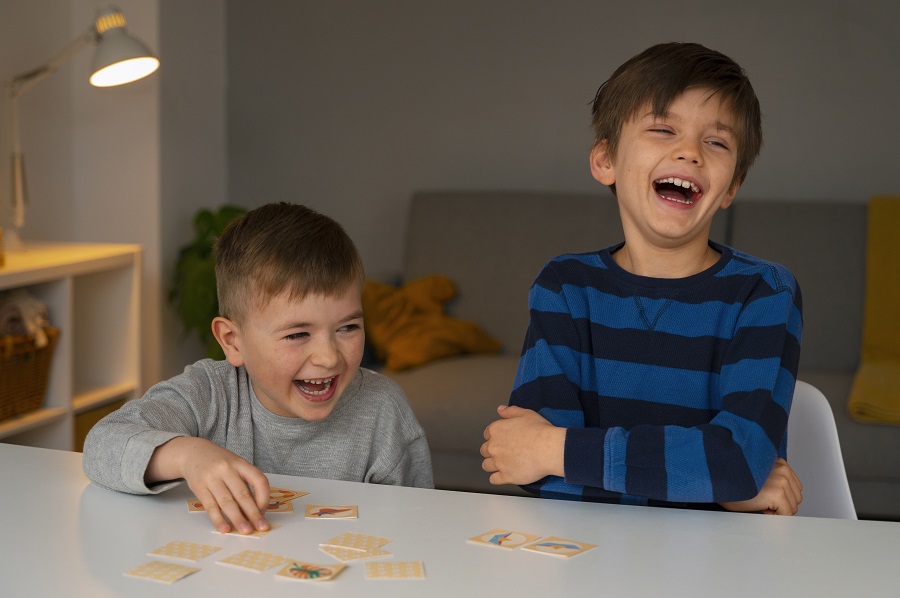Fun and Educational Games for Students at Home
Keeping students engaged at home can be challenging, especially when balancing entertainment with education. Fortunately, there are many fun and educational games that allow children to learn while playing. Whether your child is in elementary school or high school, the right games can help reinforce school concepts, build important skills, and make learning a joyful experience. In this article, we’ll explore some of the best fun and educational games for students at home, suitable for a wide range of ages and subjects.
Why Educational Games Are Important
Educational games are more than just a way to pass the time—they promote critical thinking, creativity, collaboration, and problem-solving. These games encourage students to learn through exploration and interaction, turning complex lessons into fun activities. With many students spending more time at home, especially with remote learning and after-school hours, incorporating these games can provide valuable educational reinforcement.
1. Prodigy Math Game
Prodigy is a fantasy-based math game that aligns with school curriculums from grade 1 to grade 8. Students answer math questions to cast spells and defeat characters in the game. The game adapts to each player’s level, ensuring a personalized learning experience. With engaging gameplay and in-game rewards, Prodigy makes math practice exciting and less intimidating for students.
2. Duolingo
Learning a new language has never been more enjoyable than with Duolingo. This free app uses bite-sized lessons, daily goals, and rewards to help students practice languages such as Spanish, French, German, and more. Its fun quizzes, interactive stories, and game-like interface make it ideal for home use. Duolingo is suitable for all ages, and even younger children can enjoy it with guidance.
3. BrainPOP
BrainPOP offers animated videos and interactive quizzes covering subjects like science, math, social studies, and English. It’s designed for students in grades 3 and up, and presents complex topics in a simple, visual, and entertaining way. After watching a video, students can test their understanding with quizzes, puzzles, and games. It’s an excellent tool for reviewing school lessons in a home setting.
4. ABCmouse
ABCmouse is perfect for early learners from ages 2 to 8. It offers a full curriculum covering reading, math, art, music, and science. The app uses songs, animations, puzzles, and games to teach fundamental concepts in a way that’s engaging for young children. With progress tracking and a reward system, ABCmouse keeps kids motivated while they learn independently at home.
5. Minecraft Education Edition
Minecraft is not just about building blocks—it’s also a powerful educational tool. Minecraft Education Edition allows students to explore history, science, math, and coding through immersive game environments. Students can build historical monuments, solve math puzzles, or learn about chemistry using in-game experiments. This version is tailored for learning and is widely used in schools and homes alike.
6. Kahoot!
Kahoot! is a quiz-based platform where students can answer multiple-choice questions on various subjects. It’s often used in classrooms, but it works just as well at home. Students can join public quizzes, create their own, or challenge friends. The competitive element and fun music make Kahoot! a hit for group study sessions or solo practice.
7. Osmo – Hands-on Learning Games
Osmo combines physical pieces and digital screens for a unique learning experience. It uses an iPad or tablet and special kits to teach spelling, drawing, coding, and math. Osmo games encourage hands-on interaction and are especially effective for visual and tactile learners. It’s a great way to keep younger kids engaged without relying solely on screen time.
8. TypingClub
Typing is an essential skill for students today, especially with online assignments and digital learning. TypingClub makes typing practice fun with interactive lessons, games, and progress badges. The app is free and suitable for kids of all ages. With regular use, students can significantly improve their typing speed and accuracy, which helps with homework and online communication.
9. Monument Valley
While not strictly educational, Monument Valley is a beautifully designed puzzle game that enhances problem-solving and spatial reasoning. The game involves navigating characters through a series of architectural illusions. It stimulates logical thinking and visual perception in a calm, artful environment. It’s a great choice for students who enjoy relaxing yet brain-challenging games.
10. Thinkrolls
Thinkrolls is a series of logic puzzles for kids aged 5 to 9. Players guide cute characters through mazes using physics-based challenges like gravity, buoyancy, and simple machines. These games introduce scientific concepts in an easy-to-understand format while improving memory, reasoning, and concentration.
Benefits of Educational Games at Home
- Reinforce classroom learning through interactive experiences
- Develop critical life skills such as time management and decision-making
- Support independent learning and confidence-building
- Make screen time more productive and educational
- Encourage family bonding through multiplayer or co-play options
Tips for Parents
To make the most of educational games at home, parents can follow a few simple tips:
- Set clear time limits to balance gaming with other activities
- Choose age-appropriate games that match your child’s learning level
- Play along with younger children to encourage interaction
- Use game progress as a reward system for academic efforts
- Keep variety in game choices to avoid boredom and promote balanced learning
Conclusion
Fun and educational games are a great way to support your child’s learning journey at home. With so many options available, you can easily find games that match your child’s interests and academic needs. Whether it’s mastering multiplication with Prodigy, exploring history with Minecraft, or learning a new language with Duolingo, these games prove that learning can be just as fun as play.
By incorporating educational games into daily routines, students can stay curious, motivated, and mentally active, even outside the classroom. For parents and educators alike, these tools offer a smart and engaging solution for home-based learning.






